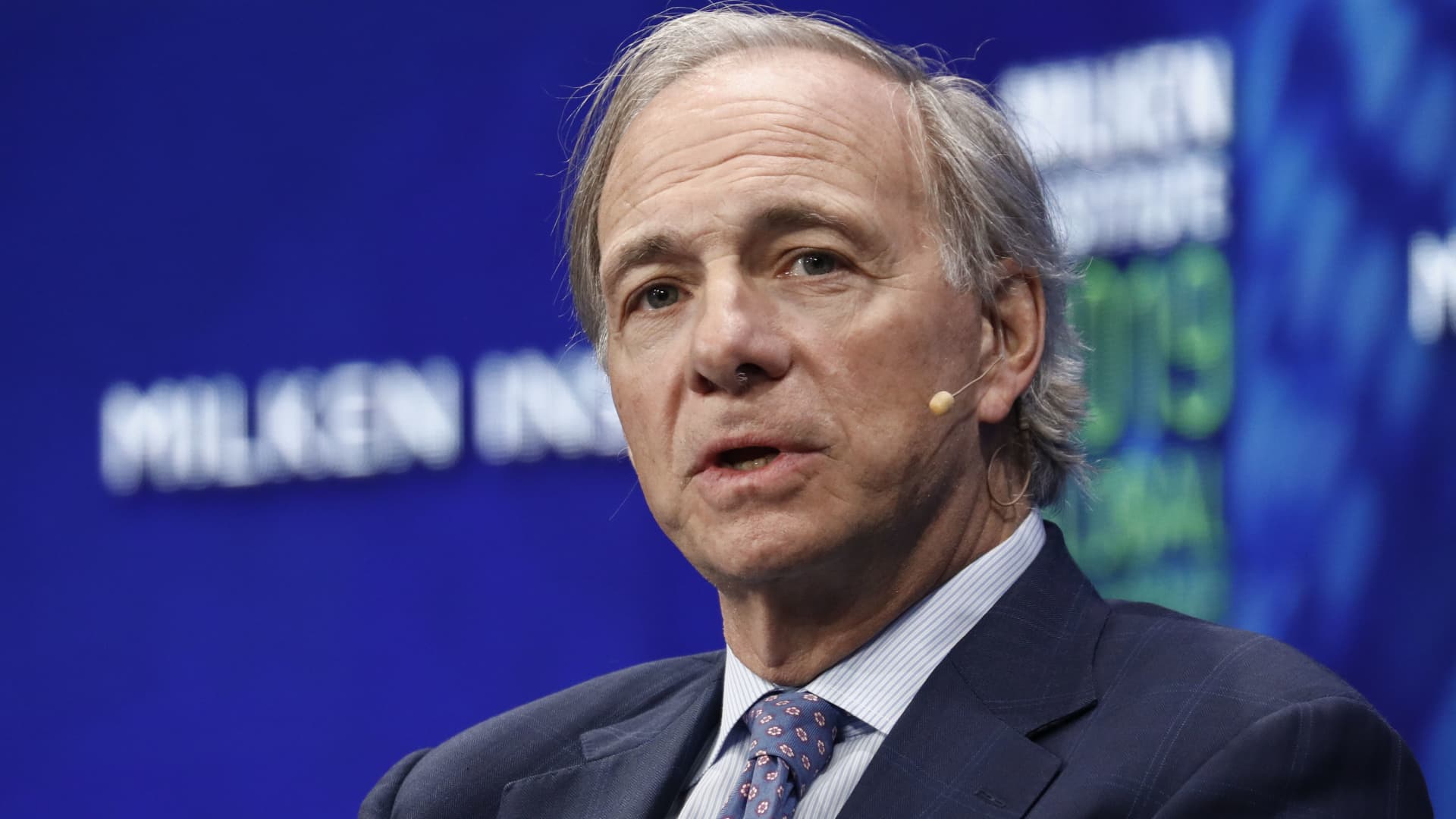As concerns mount over rising interest rates and inflation levels, billionaire investor Ray Dalio says he prefers to hold cash for now, not bonds.
“I don’t want to own debt, you know, bonds and those kinds of things,” the founder of Bridgewater Associates said when asked how he would deploy capital in today’s investment environment.
“Temporarily, right now, cash I think is good … and the interest rates are fine. I don’t think [it] will be sustained that way,” Dalio told an audience at the Milken Institute Asia Summit in Singapore on Thursday.
Dalio’s comments come as the yield on the 30-day U.S. Treasury bill climbs above 5% while investors can get 4% on certificates of deposit and high-yield savings accounts.
Dalio says the biggest mistake that most investors make is “believing that markets that performed well are good investments, rather than more expensive.”
When asked how a new industry watcher should deploy capital, Dalio’s advice was: Be in the right geographies, diversify, pay attention to the implications of disruptions and pick asset classes that are creating new technologies and using them “in the best possible way.”
Rising debt
Touching on how to address the rising global debt, the hedge fund manager pointed out that when debt accounts for a substantial share of a country’s economy, the situation “tends to compound and accelerate … because you have to have interest rates that are high enough for the creditor and not so high that they are harming the debtor.”
“We’re at that turning point of acceleration. But the real problem comes when individuals or investors don’t hold the bonds, because it comes as a supply-demand, one man’s debts or another man’s assets,” he explained.
Dalio cautioned that investors will sell their bonds if they are not receiving real interest rates that are high enough.
“The supply-demand [imbalance] isn’t just the amount of new bonds. It’s the issue of ‘do you choose to sell the bonds?'” he explained.
When there’s a sell-off in bonds, prices fall and yields rise, as they have an inverse relationship. As a result, borrowing costs will increase and drive up inflationary pressure, thereby posing an uphill task for central banks.
“When the interest rates go up, the central bank then has to make a choice: Do they let them go up and have the consequences of that, or do they then print money and buy those bonds? And that has inflationary consequences,” Dalio explained.
“We’re seeing that dynamic happen now. I personally believe that the bonds longer term are not a good investment,” he stressed.
